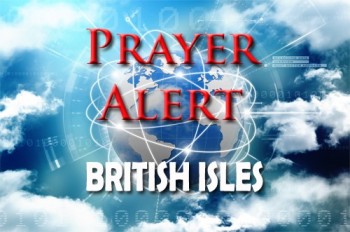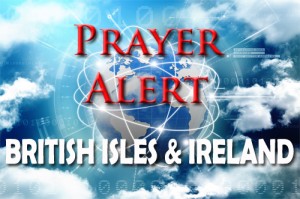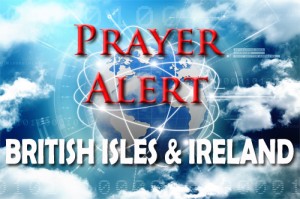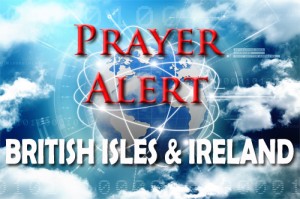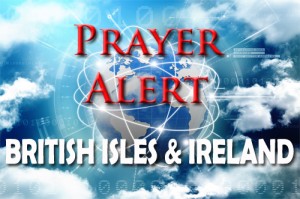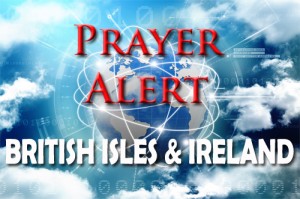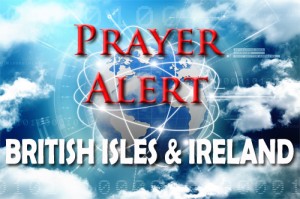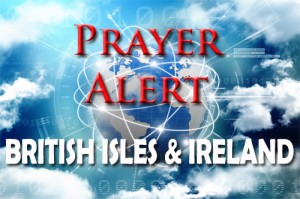Displaying items by tag: Health
DRC: 1,000+ Ebola cases
A quarter of people interviewed in eastern DR Congo believe Ebola is not real, underscoring the enormous challenges that healthcare workers are facing as the epidemic exceeds 1,000 cases. Public mistrust is not helping; people refuse vaccines, resist treatment and conceal symptoms. Even though health workers are better prepared than ever, with new technologies, trial treatments, and futuristic mobile treatment units, they are not curbing the spread of the virus. Five Ebola centres have been attacked since last month, sometimes by armed assailants. The violence led French medical charity Médecins Sans Frontières (MSF) to suspend activities at the epicentre of the outbreak. Now Bunia city, with 1 million people, has confirmed a case. Pray for the health ministry and partners as they listen to the affected communities, address their concerns, and quell misinformation and mistrust; and for the military to strengthen defences against attacks on health centres. See https://qz.com/africa/1582080/ebola-in-dr-congo-tops-1000-cases-struggles-to-contain-spread/
Self-harm not just an issue for girls
Research has found that 24% of boys aged 16 to 24 in the UK self-harm. Sadly, the culture of men not showing emotions or talking through their emotional concerns has a direct link to the suicide rate in older men. Young men need to talk about their feelings and emotions before they become men who haven’t learnt how to, and feel they have no way of coping but to take their own lives. Self-harm in young men and teenage boys may exhibit differently from females. Males self-poison with paracetamol or ibuprofen as a way of coping with daily anxieties and fears; the next highest form of self-harm in young men is cutting and hanging. Punching walls or regularly fighting are forms of self-harm that are missed because the behaviour is seen as aggressive rather than emotional.
London’s pollution levels still unsatisfactory
Research published on 14 November shows that London’s low-emission traffic zone has modestly reduced residents’ exposure to diesel engine pollution, but the better air quality has not brought improved lung health among children. The results suggest that while air pollution levels may be reduced by low emission zones, extra measures are needed to deliver air clean enough to improve health. WHO says that in addition to the pollution problems caused by diesel vehicles, nitrogen oxide - which has been linked to asthma and impaired lung development in children - has become a major problem. Professor Chris Griffiths, who co-led the research, said, ‘In many areas of London, air pollution still remains a major issue’.
Right to die law changes
The Supreme Court ruled on 30 July that hospitals can now end life-sustaining care for patients without the need to seek court approval, if families and doctors are in agreement. The ruling was said to ‘clarify the law’, and avoids the need in many cases for families to come to court. Judicial approval will now not be required to withdraw life-prolonging treatments from patients with a prolonged disorder of consciousness such as being in a minimally-conscious or persistent vegetative state - if families and medical staff agree. Previously, some NHS Trusts were unsure as to whether they might find themselves liable to legal action if they went ahead with withdrawal of treatment before seeking permission. The court, led by Lady Black, ruled that to take such action was not a breach of a patient’s human rights. Many Christians believe this decision does not reflect the ‘views of the pews’. The Christian Medical Fellowship said it is never humane to end someone else's life. See
Small talk saves lives
The path to suicide is usually gradual, progressing from suicidal thoughts to planning, then attempting, suicide, and finally death. Mark Harris of the Samaritans recently commented on ways of talking and listening that can help others in crisis. He said that making small talk with a stranger might save their life. Walking up to someone who seems distant or distressed and asking ‘Are you OK?’ or ‘Do you fancy a coffee?’ might be enough to break the chain of suicidal thinking and move them to seek help. He said people should not worry about saying the wrong thing. Often, someone in crisis is looking for an intervention and saying something, however small or seemingly silly, is better than walking on by. ‘By asking questions you are eliciting a response from someone, and you are at once engaging with them.’ In 2016, there were 4,941 suicide deaths in England and Wales - but a much larger number consider taking their own lives. See
Freedom from addiction
Betel UK is a Christian charity helping men and women trapped in addiction. 44-year-old Kim says, ‘I came into Betel hoping to stay for two weeks to get off drugs. Fourteen years later, I'm still here! God has captured my heart and completely transformed my life. Now I live a life that was once unimaginable to me. I'm the women's supervisor here. I love seeing people being transformed by the power of the cross. I'm married with two beautiful daughters, and my life is focussed on the Lord and His plans for me. I once heard a speaker saying, “I don't want to go where God's presence won't be”. That's my heart. I lived without the Lord for so many years and now I can't imagine life without Him. I was once trapped in addiction and darkness, but through Jesus, I now have a freedom I never knew was possible.’
NI supreme court examines abortion law appeal
Northern Ireland's’ supreme court judges are considering whether abortion laws breach human rights. Currently abortion is illegal unless a woman's life is in danger or if continuing the pregnancy would cause mental or physical harm. On 25 and 26 October a number of contributors explained why they believe the law is incompatible with human rights, while others explained their opposition to any law changes. Ireland's attorney general and lawyers for the department of justice argued for the status quo. Christian politician Jim Shannon said democratic values must be upheld, amid supreme court scrutiny of the abortion laws; and the majority of people in Northern Ireland support current laws. See also the next article.
Archbishops speak out on abortion
In a statement to healthcare professionals and others involved in terminations, Cardinal Vincent Nichols, Archbishop of Westminster, and his Scottish counterpart Archbishop Philip Tartaglia called for a change of attitudes, in favour of greater protection for human life. Over eight million pregnancies have been aborted since David Steel's private member's bill became law fifty years ago. Urging a period of prayer and fasting, the 2,000-word document signed by the Catholic leaders also expressed concern that there are not enough safeguards protecting unborn children with disabilities. They said there was an urgent need for parents and teachers to promote the sanctity of human life. See the previous article.
South Sudan: severe malaria outbreak
The ministry of health in South Sudan has said that this year’s malaria is the worst the country has ever seen. Over 900,000 cases had been reported by 21 August. This life-threatening blood disease is transmitted through the bite of the Anopheles mosquito. Once an infected mosquito bites a human, the parasites multiply in the host’s liver before infecting and destroying red blood cells. More than 76% of disease-related deaths in South Sudan are from malaria. Authorities have stepped up efforts to fight the disease, but there is a lack of funds. Pray for the malaria victims in northern villages unreachable by road. Pray for the provision of mosquito nets for poor people who cannot afford to purchase their own. Pray for the majority of the population, who do not currently have access to health care or immunisation programmes, See also:
Autism / MMR vaccine debate continues
The father of an autistic child, who is also a GP administering MMR vaccine to babies, reports that outbreaks of measles in France and Italy have prompted the authorities to make childhood immunisation compulsory. Now a newspaper editorial demands similar UK measures, insisting that ‘parental refusal of immunisation should not be tolerated’. A notorious 1998 study in The Lancet suggested a link between MMR and autism. The paper presented no evidence for this link, which caused undue alarm among parents of children with autism and parents of children due for vaccinations. Since then a voluntary approach to childhood immunisation has successfully ensured high levels of protection for British children. An anti-vax cause has been politically endorsed by Donald Trump and Italy’s Beppe Grillo, in spite of accurate and ethical grounds for opposing compulsion. A voluntary approach to childhood immunisation has consistently protected British children despite scares and ill-informed campaigns.

